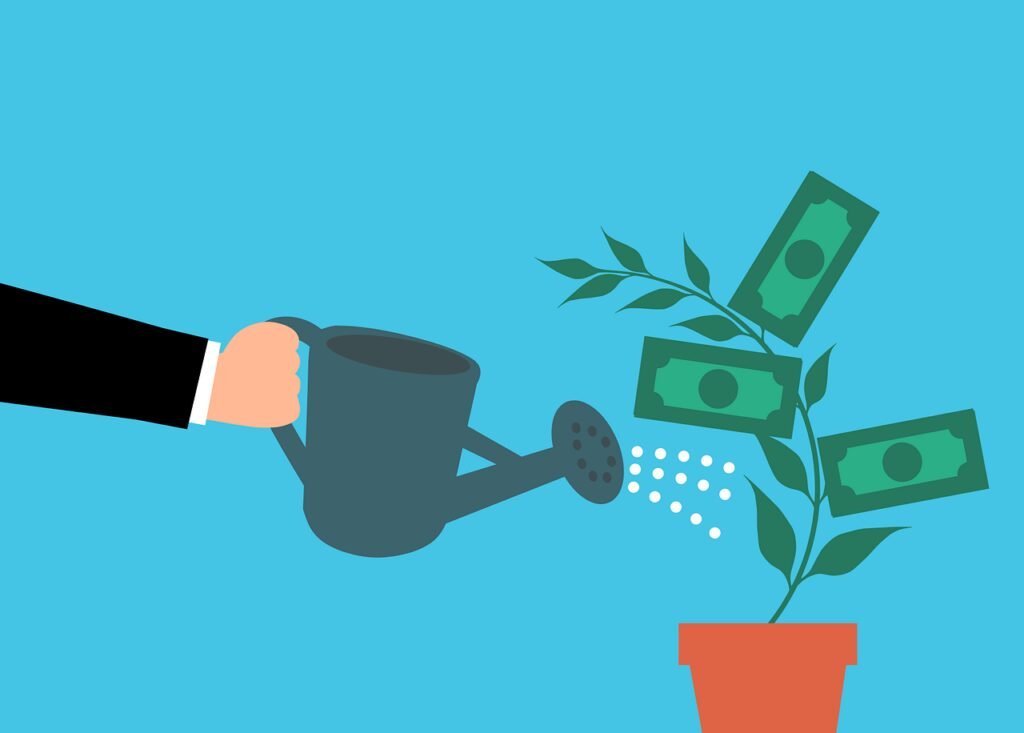Inflation—it’s a word that pops up in the news, conversations about the economy, and financial advice, but what does it really mean for your money? Whether you’re saving for a vacation, planning retirement, or just trying to make your paycheck stretch, understanding inflation is key to making smarter financial decisions. In 2025, as inflation dynamics continue to shift globally, getting a handle on this concept is more important than ever. Let’s break down inflation in simple terms, explore why it happens, how it affects your wallet, and what you can do to protect yourself.
What Is Inflation?
At its core, inflation is the rate at which the general level of prices for goods and services rises over time. When inflation occurs, your money buys less than it did before—that $5 coffee today might cost $5.50 next year. It’s like a slow leak in your wallet if you don’t plan for it.
Why Does Inflation Happen?
Several factors can cause inflation: increased demand for goods and services, rising production costs (like wages and materials), supply chain disruptions, and monetary policies such as central banks printing more money. Sometimes, inflation reflects a growing economy; other times, it signals instability.
Types of Inflation
- Demand-Pull Inflation: Happens when demand outpaces supply, driving prices up. Imagine a sudden craze for a new gadget; with limited stock, sellers raise prices.
- Cost-Push Inflation: Triggered by rising costs of production—think higher oil prices making transportation and manufacturing more expensive.
- Built-In Inflation: Expectations of inflation can cause workers to demand higher wages, which businesses then pass on to consumers, creating a feedback loop.
How Inflation Affects Your Money
Inflation impacts everyday life in several ways. Your purchasing power decreases, meaning your money buys fewer goods and services. This can squeeze budgets, especially if wages don’t keep up. Savings held in low-interest accounts lose value in real terms. On the flip side, if you have debts with fixed interest rates, inflation can reduce their real burden over time.
Why Inflation Isn’t Always Bad
A moderate level of inflation (around 2%) is actually healthy for the economy—it encourages spending and investing rather than hoarding cash. It helps businesses grow and workers get paid more over time. Problems arise when inflation runs too high (hyperinflation) or dips too low (deflation), each causing economic headaches.
How to Protect Your Money From Inflation
1. Invest in Assets That Outpace Inflation
Stocks, real estate, and certain commodities often appreciate faster than inflation, helping your money grow in real terms.
2. Consider Treasury Inflation-Protected Securities (TIPS)
These government bonds adjust their principal with inflation, providing a safeguard for your investment.
3. Keep an Eye on Interest Rates
Higher interest rates often accompany inflation control efforts. Shop for savings accounts or CDs with rates that at least match inflation to preserve value.
4. Diversify Your Portfolio
Spreading investments across asset classes can reduce risk and help keep pace with inflation’s ups and downs.
5. Review and Adjust Your Budget
Prices for groceries, gas, and utilities may rise—plan accordingly by trimming non-essential expenses or finding cheaper alternatives.
The Role of Central Banks
Central banks like the Federal Reserve use tools such as adjusting interest rates and controlling money supply to manage inflation. When inflation rises too quickly, they may raise rates to cool spending; when inflation is low, they might lower rates to encourage borrowing and growth.
How Inflation Affects Salaries and Wages
Ideally, wages should keep pace with inflation, preserving your standard of living. However, when inflation outstrips wage growth, workers effectively earn less. Negotiating raises, improving skills, or switching jobs can help you stay ahead.
Inflation and Debt
If you have fixed-rate debt, inflation can be your friend—your payments stay the same while the money you pay with is worth less. But variable-rate loans can become more expensive if interest rates rise to combat inflation.
Inflation’s Impact on Retirement Planning
Inflation can erode retirement savings if not accounted for. Planning for a retirement income that adjusts for inflation ensures you don’t outlive your money.
Global Inflation Trends
Inflation rates vary worldwide based on economic conditions, policies, and global events. Staying informed helps investors and consumers make better decisions.
Conclusion: Keep Inflation on Your Radar
Inflation might seem like an abstract economic term, but it touches every dollar you earn, spend, or save. By understanding what drives inflation and how it affects your finances, you’re better equipped to protect your money and plan for the future. Smart investing, budgeting, and staying informed are your best tools to keep inflation from draining your wallet.
FAQs
1. Is inflation the same everywhere?
No, inflation rates differ by country and even by region within countries based on economic factors.
2. Can inflation go negative?
Yes, that’s called deflation, which means prices are falling—this can lead to reduced spending and economic slowdown.
3. How often does inflation data get updated?
Most governments release monthly or quarterly inflation reports.
4. What’s a good inflation rate?
Central banks usually target around 2% as a healthy inflation rate.
5. How can I tell if my investments are beating inflation?
Compare your investment returns to the inflation rate—positive returns above inflation mean your money is growing in real terms.




